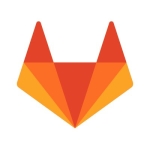I primarily use the product to collaborate with the product and engineering teams. Depending on the product stage, I may draft or review the PRD, providing feedback for improvement. I use it to plan and schedule the things I take care of. I can create and share a document if I want to discuss new ideas with my team remotely.
Before, I used Excel, but switching to this tool has been a significant improvement. It's much more collaborative and user-friendly. With many functions, entering and processing data is easier and faster. I can easily link documents to clients and perform tasks like inserting tables with simple commands, which helps speed up my work.
Jira Portfolio is part of our standard operating procedures to ensure product functions run seamlessly and smoothly. Providing people with sufficient tools to collaborate effectively is crucial to achieve this. Jira has become the go-to document processing tool for facilitating this collaboration and ensuring productivity. Every aspect of the product is critical for your workflow, whether gathering input from team members or seamlessly writing and managing documents.
We are based in India; I would like the product to integrate local pricing. We earn in rupees but spend in dollars. Its pricing could also be lowered.
I have been using the product for three and a half years.
I haven't encountered any stability issues.
I haven't contacted the technical support team personally.
Jira Portfolio's deployment is easy. We started by signing up for the software's seven-day free trial using our credit card. After the trial, we decided to opt for a paid plan based on the number of licenses we needed. As for any custom plans or requirements, we haven't reached that scale yet, but we know we can contact their team for further discussions when needed.
Integrating Jira Portfolio with Slack, Camunda, and other tools is part of our standard operating procedure. It helps in coordination. However, I didn't handle the integration myself. Instead, I relied on a team of more experts about the product.
Our team has worked with the product previously and didn't need to overcome learning curve challenges. 80 percent of my organization is well versed in it. They can help people who don't know the product. I rate it an eight out of ten.











